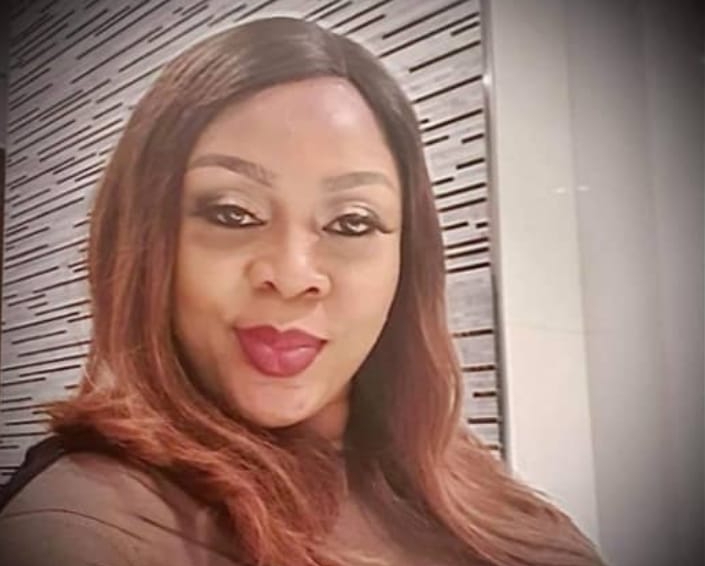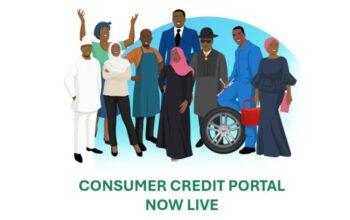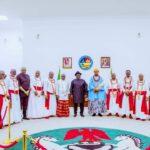A few years ago, I followed with keen interest, the unending debate about beat and lyrics. The argument at the time, was essentially between melody and musical words, and which was more important. A very interesting disagreement, I must say. But one thing is sure, and this unquestionable reality is anchored on the fact that for as long as there are different music tastes from age to age, this debate will remain a healthy and never-ending exercise. However, I cannot, even as an ardent music lover, overemphasize the importance of lyrical content in a musical composition. I know my position may sound unconvincing in the view of a few, but at a personal level, I believe lyrics is everything, and it is very critical in every work. It is also the foundation on which everything musical, stands.
The question therefore, is: what makes a musical work everlasting or ageless? Is it lyrics or melody?
For me, I will vote anytime and any day, for the lyrical content in any work, irrespective of genre.
It is therefore very important for creatives to create and produce with good and edifying words, bearing in mind, that lyrics give either good or bad effect to the listener. And for children particularly, the damage of debauched or depraved lyrics is always damaging and sometimes, irreversible. But this reality does not in any way, discountenance the fact that music could also be greatly enjoyed without words. Understandably, this appeal of wordless musical works or creations which was prevalent in the classical era, cuts across age, gender, religion, race and language.
Whichever way, music remains one of the most important and powerful things in many lives, both in Nigeria and outside. This universality of thoughts and feelings, make music broad and seductive.
Growing up, I remember music was a major staple, and as young people in those days, we were attentive to the lyrical content of every song. As a matter of fact, we appreciated musical works, both locally and internationally, on the basis of lyrics. But we were also lucky because there were no instances of extremely lascivious or lewd lyrics, a trend that is today, part and parcel of most music productions.
Regrettably, vulgar lyrics fuel social vices, dislocation and violence in today’s world.
In spite of all the willful distortions in the world of music today, I still love music, and anyone that follows me on social media can attest to this fact. But the music that I know, I must say, is the soul of my life. This kind of music I talk about gleefully, is like the blood that runs in the body. Music generally, is meant to inspire people, send useful messages, correct societal ills, heal people in difficult times and lift spirits.
Therefore, for me, music is life; and this is demonstrable. Many of us who love music, know that it improves health and wellbeing. And it is interesting also to note that music and its effects on man, remain a fascinating research area for musicologist, psychologists, sociologists, philosophers and scholars in different areas of study.
For instance, in 2019, a comprehensive research with the title: Using Music to Tune the Heart, and carried out by Harvard University in the United States of America, revealed that music can lower blood pressure and heart rate. Further investigations also showed that music can improve mood, lessen anxiety, inspire both the young and the old, reduce loneliness and prolong life. Memory, science and technology can also benefit immensely from musical notes.
So, beyond bringing people together for social, cultural and entertainment purposes, music does so many other important things, including helping people to live a meaningful life. In fact, with music, one can accurately predict the personalities and preferences of even a stranger. That is why we cannot afford to leave music unregulated or uncontrolled.
Unfortunately, some of today’s music is off-putting, wild and nauseating. And we must not forget that the decadence we see today draws substantially from our indifference and our happy-go-lucky attitude which is directly linked to what we allow in our society.
Therefore, the elders of today must tell our high-flying and impatient Afrobeat superstars and producers that music is also a tool for education, solidarity, revival and romance. For instance, back in the day, if a man wanted to be noticed by a woman, he can actually capture her attention with his musical taste and preferences. Again, it is easy to spot the difference between Hello, Is It Me You’re Looking For?, a classic by Lionel Richie, and Nobi You I Carry Come, But Na You I go Carry Go, a locally produced work that many Nigerians still consider lecherous because of the song’s unnecessary sexual, condescending and rude nature.
Who still remembers Onyeka Onwenu and King Sunny Ade’s collaborative album: Wait for Me of 1989, a hit song that encourages good behavior among teenagers? Or Time Na Money, Mike Okri’s definitive work that celebrates diligence and hard work.
This is exactly what music should do; it is also the best way to go at a time like this. But this road that is less travelled, is a tall order in the music industry, and we all know. After all, many artistes thrive in their music careers these days because immorality sells. This ugly situation has been further compounded by some vulgar music videos that seem to celebrate nudity and the worst of us as Africans. Given the situation in the world of music today in Nigeria, I think everyone: parents, government, religious leaders, non-profit organizations, older musicians, forward-looking young people and regulatory bodies, should be worried. And everyone must get involved.
From every indication, it appears many Nigerian are on the same page on this. It is also obvious that we all seem to agree that we’ve got to bell the cat. But where are the volunteers for this all-important assignment, and how do we begin? This is clearly a race against time, but we must surely begin, in spite of all the constraints.
All over the world, regulatory bodies are established, empowered and respected as public authorities because of the key roles they play in the society. And regulatory institutions are not just agents of change, they are also purveyors of business growth, economic development and stability. I am not sure many Nigerians know that the Nigerian Copyright Commission, NCC regulates the music industry. There is also another body, the National Film and Videos Censors Board, NFVCB that regulates movies, entertainment and related show businesses across Nigeria. NFVCB also classifies and registers all films and video outlets in Nigeria. So, how far have these agencies, especially NCC, fared in the discharge of their duties with regard to the issue at hand? I am very sure that if these regulatory bodies were at their highest level, there wouldn’t be any need for this opinion article. But as a firm believer in the maxim that the room for improvement is always the biggest room, I would want to use this opportunity to urge them to get to work and up their game.
Beyond government approved regulators, there is also a role in this respect for collective management organizations like Copyright Society of Nigeria, COSON, and Musical Copyright Society of Nigeria, MCSN, bodies that represent and collect royalties for the usage of the works of musicians who are their members. For example, Chief Tony Okoroji, the man at the helm of affairs at COSON, was the former flamboyant and resourceful president of Performing Musicians Employers’ Association of Nigeria, PMAN. This former PMAN’s president is also a good writer because I follow Saturday Breakfast with Tony Okoroji every weekend. I therefore challenge Okoroji to use his knowledge, experience and writing skills to address this overwhelming preponderance of dirty and uninspiring lyrics that do not define who we are. He, as a respected musician and administrator, must be at the forefront of this clean-up exercise of the music scene.
After all, if we all agree with Mahatma Ghandi, one of 20th Century’s greatest spiritual and political leaders, that the future depends on today, then we must take ourselves, our country and our tomorrow, more seriously. We must ward off this threat to our art, culture and shared sense of belonging.
Dr. Ochei, a Business Development Coach and Gender Advocate writes from Lagos.
Sponsored Content










